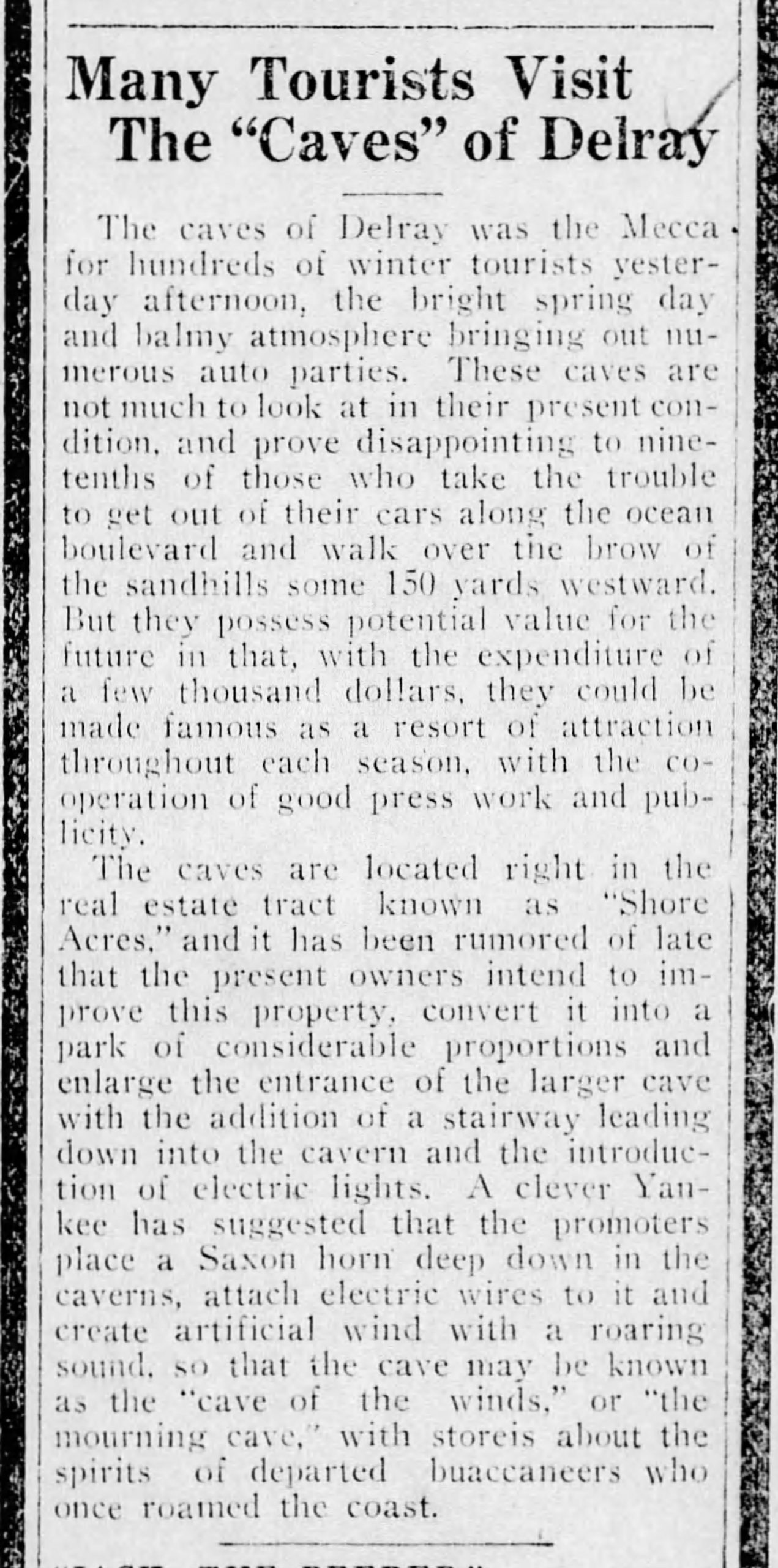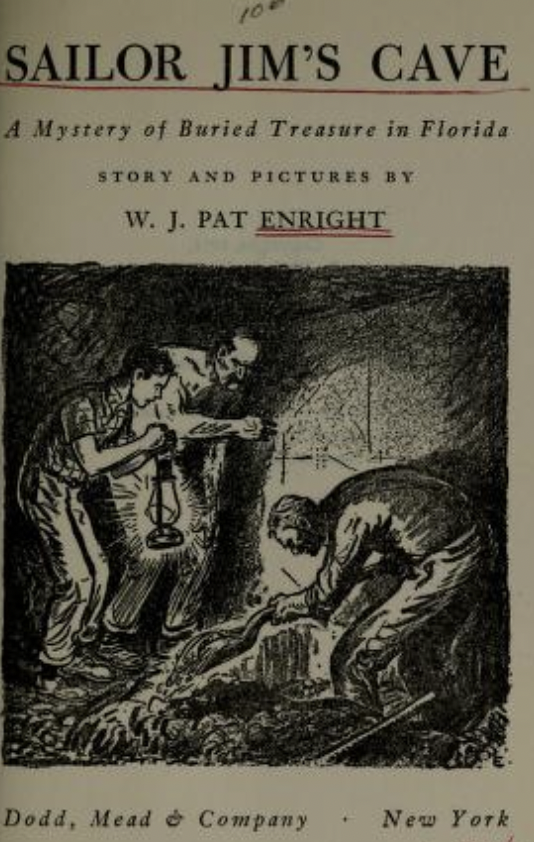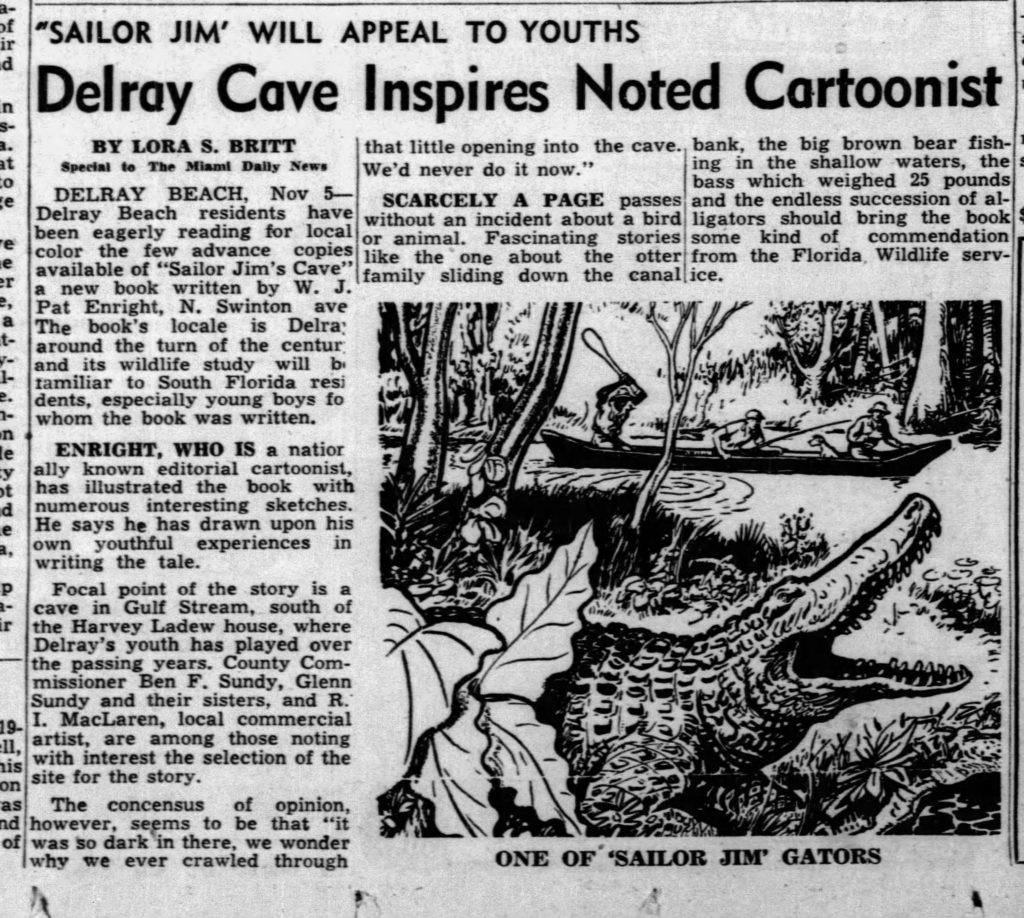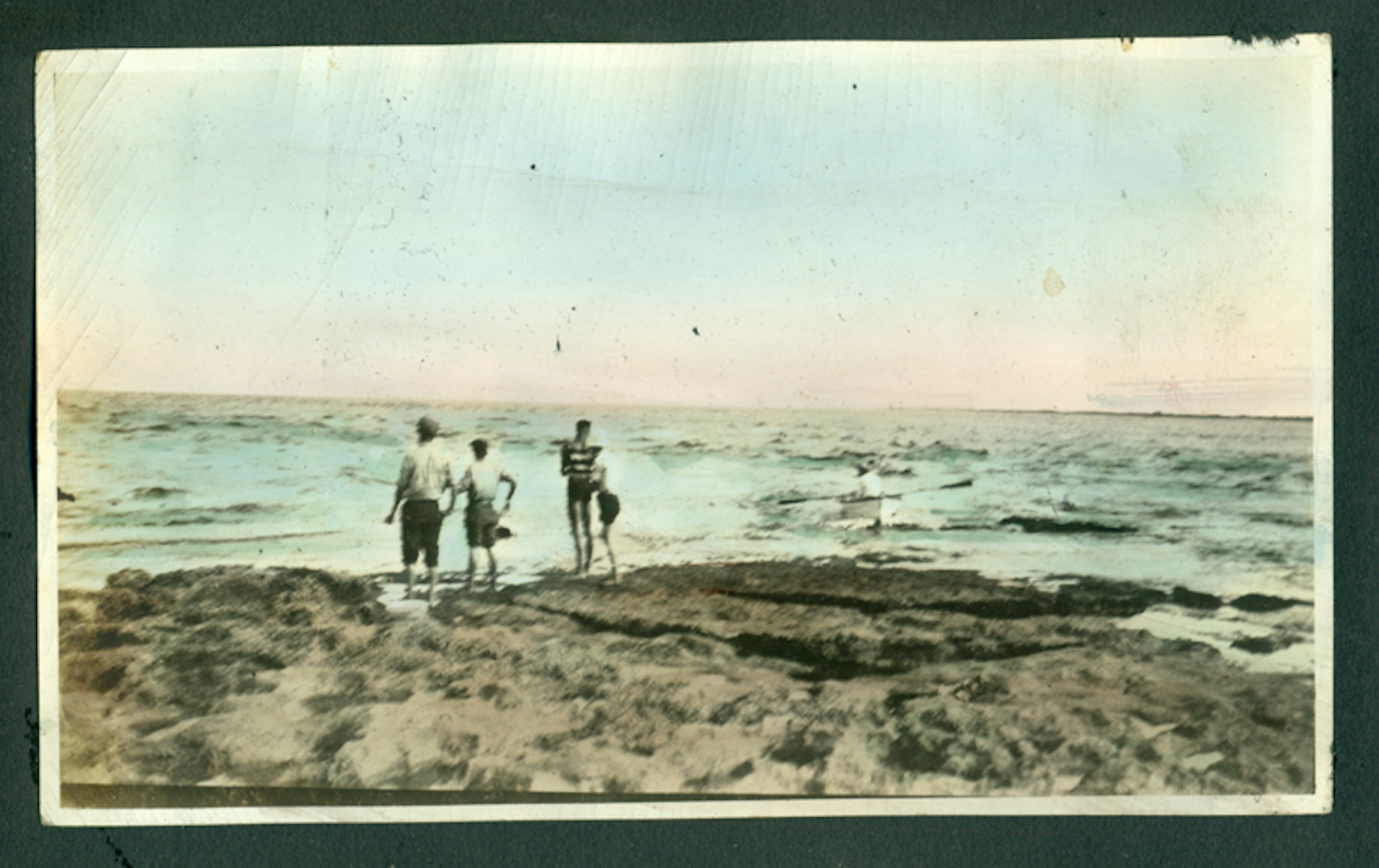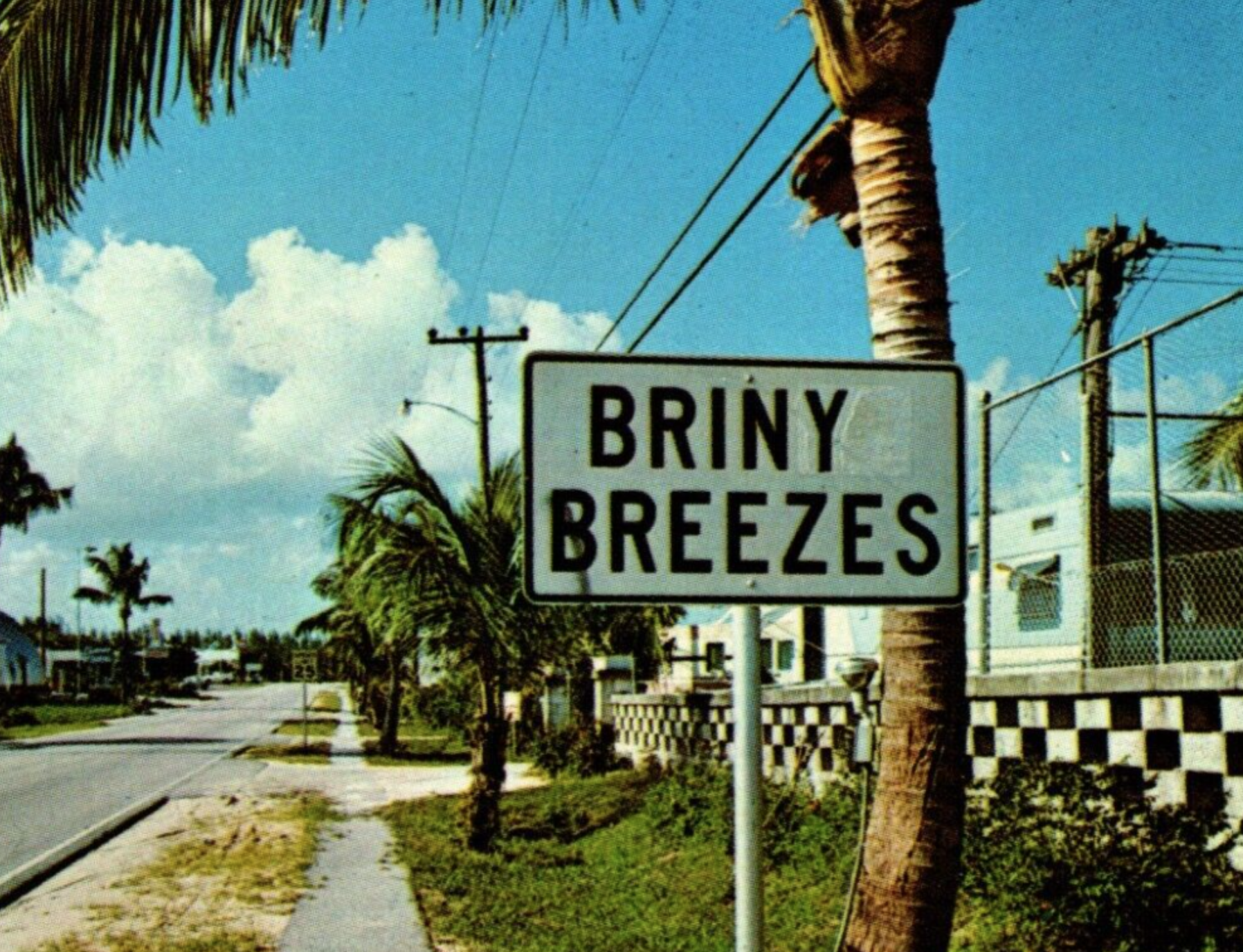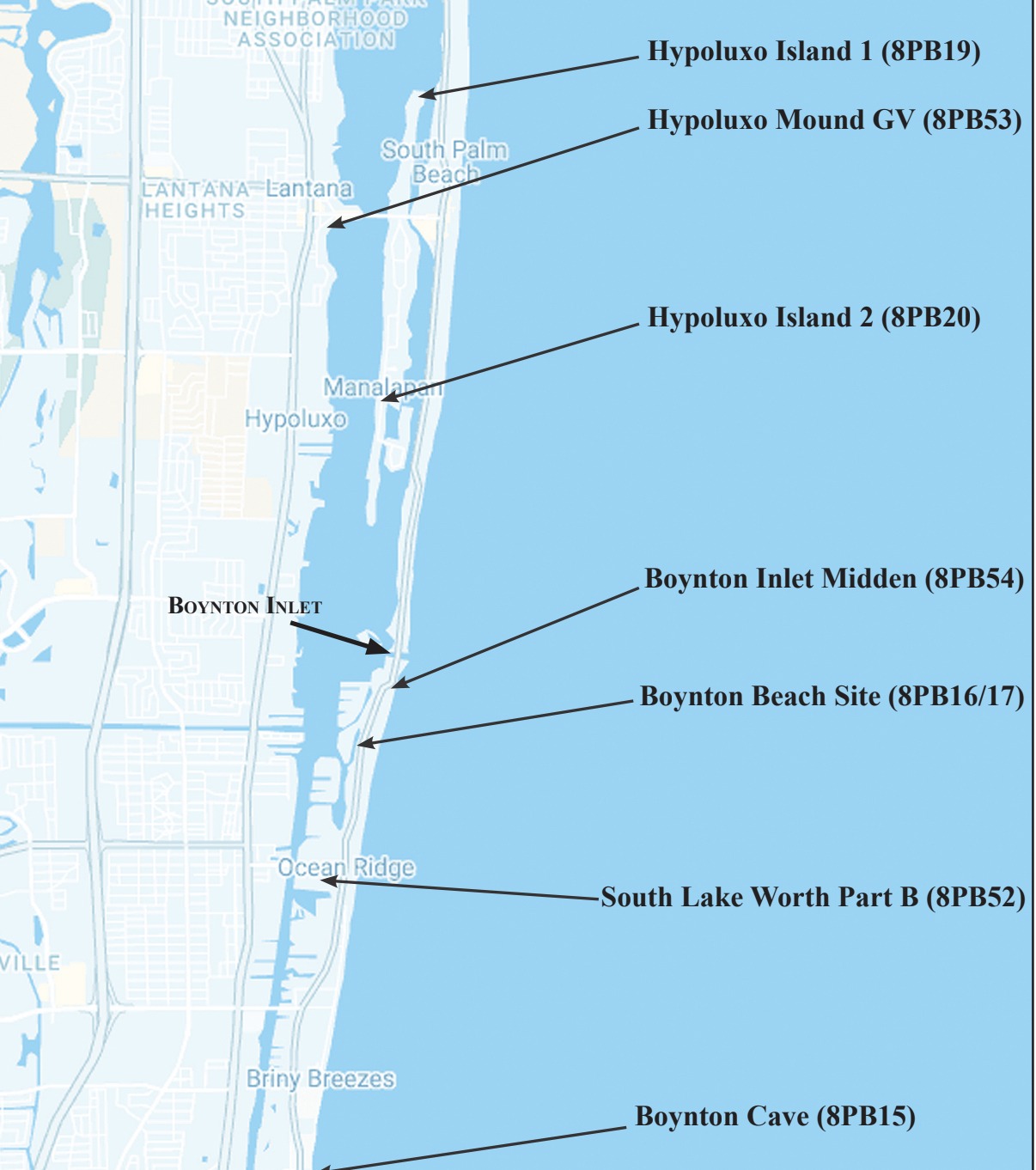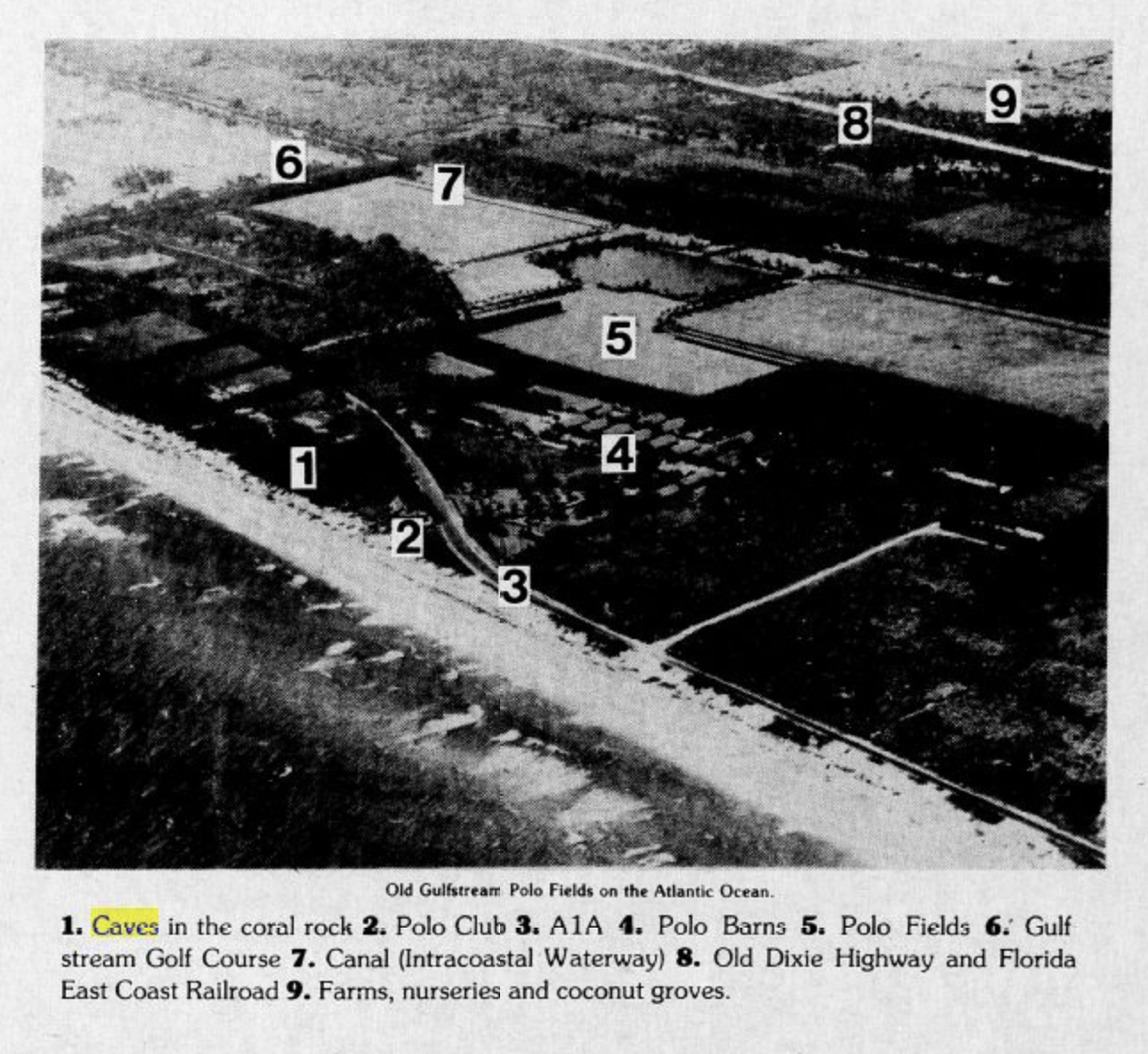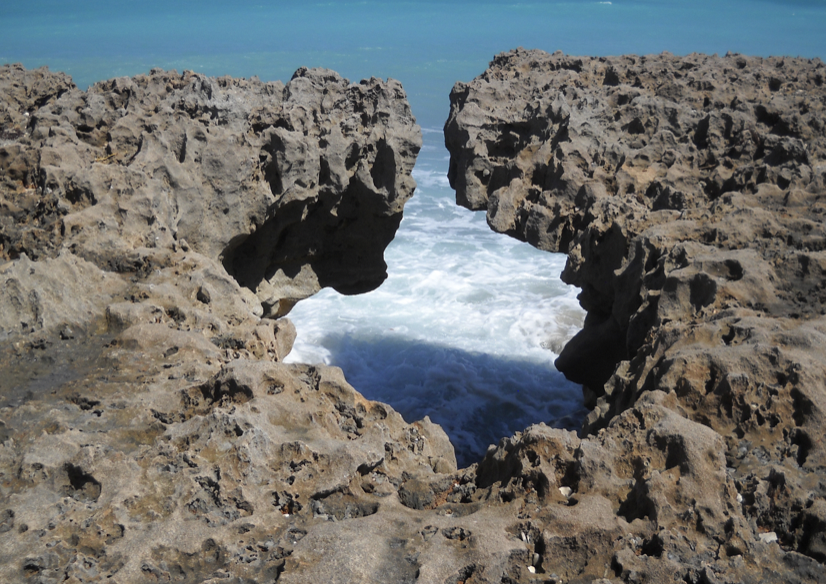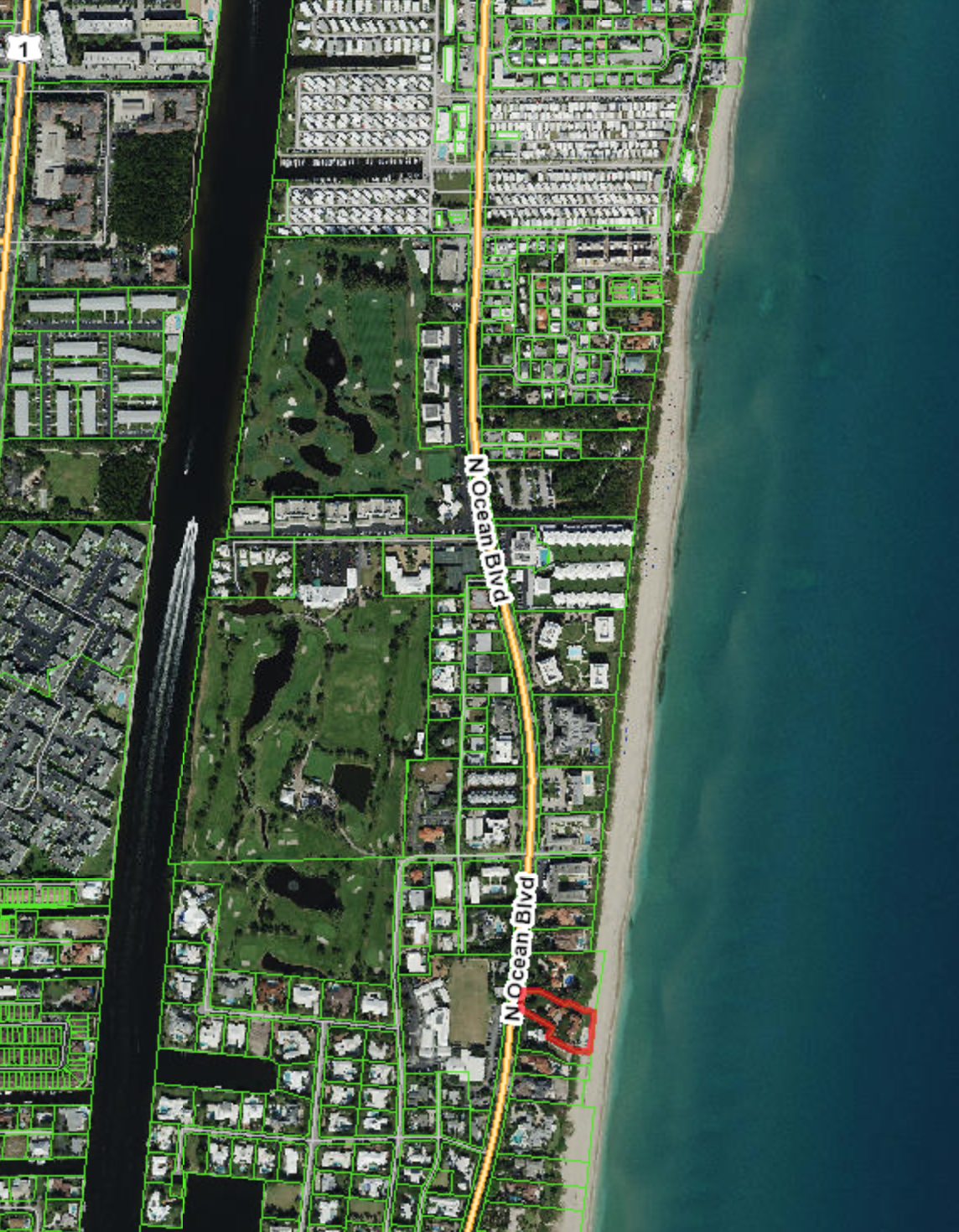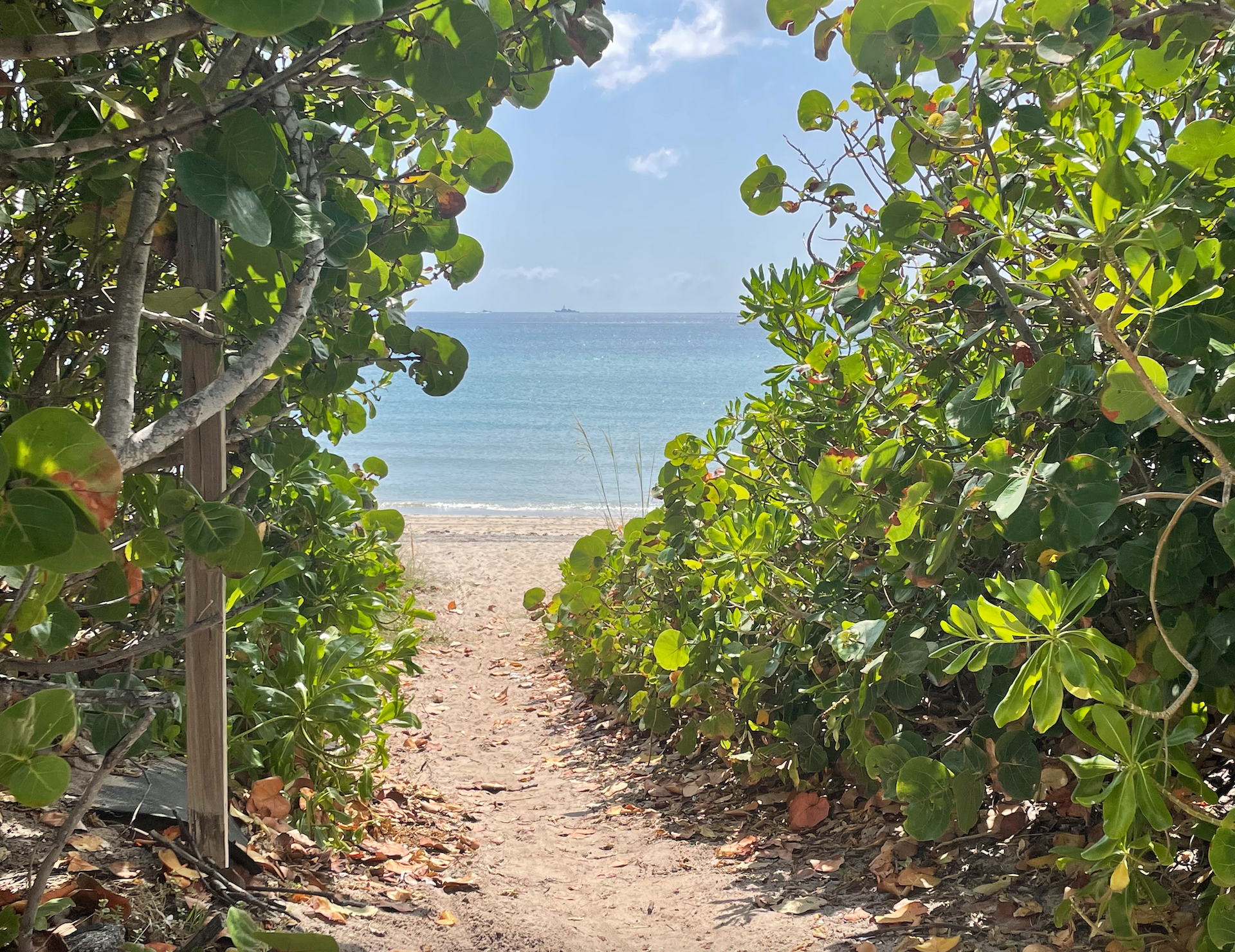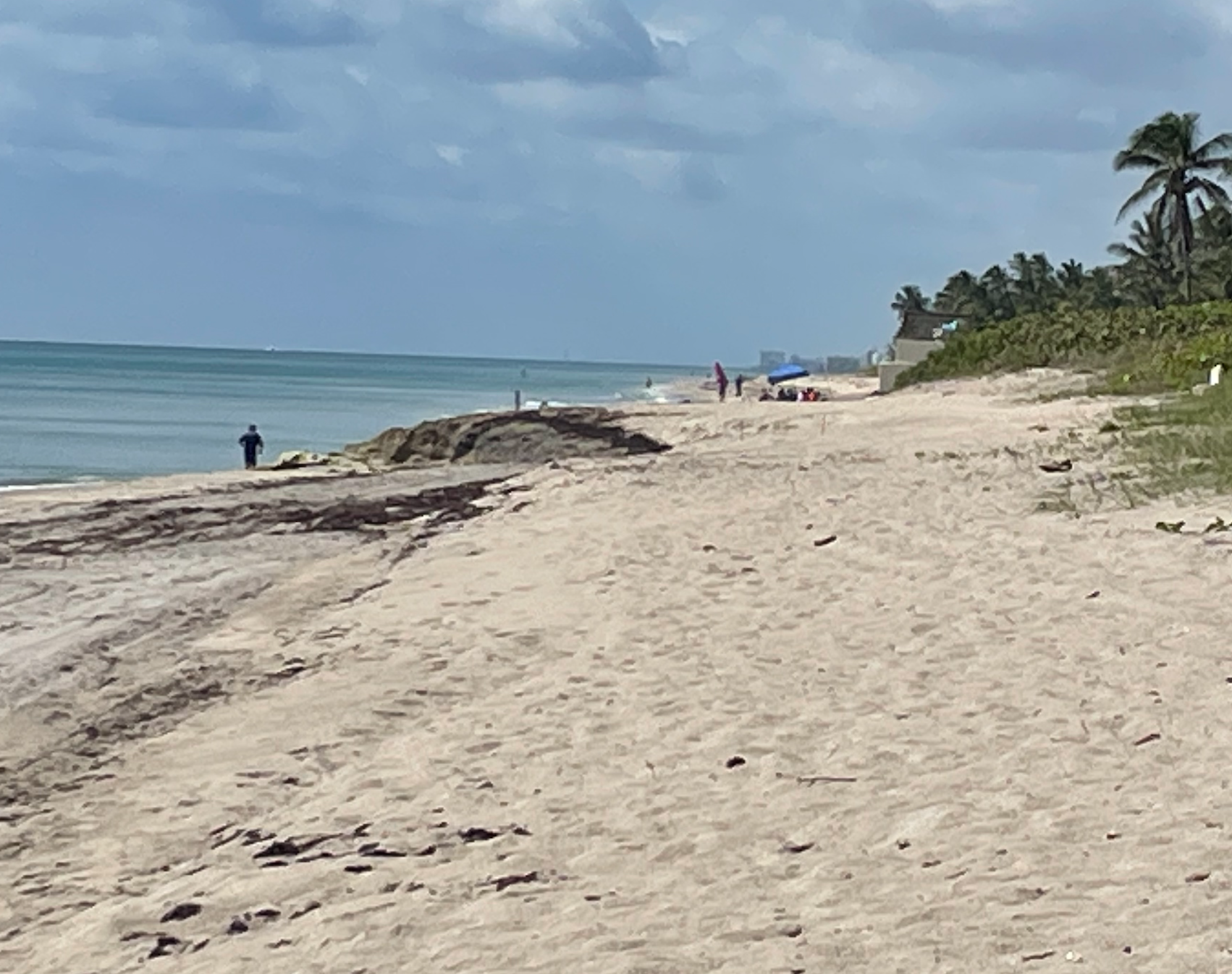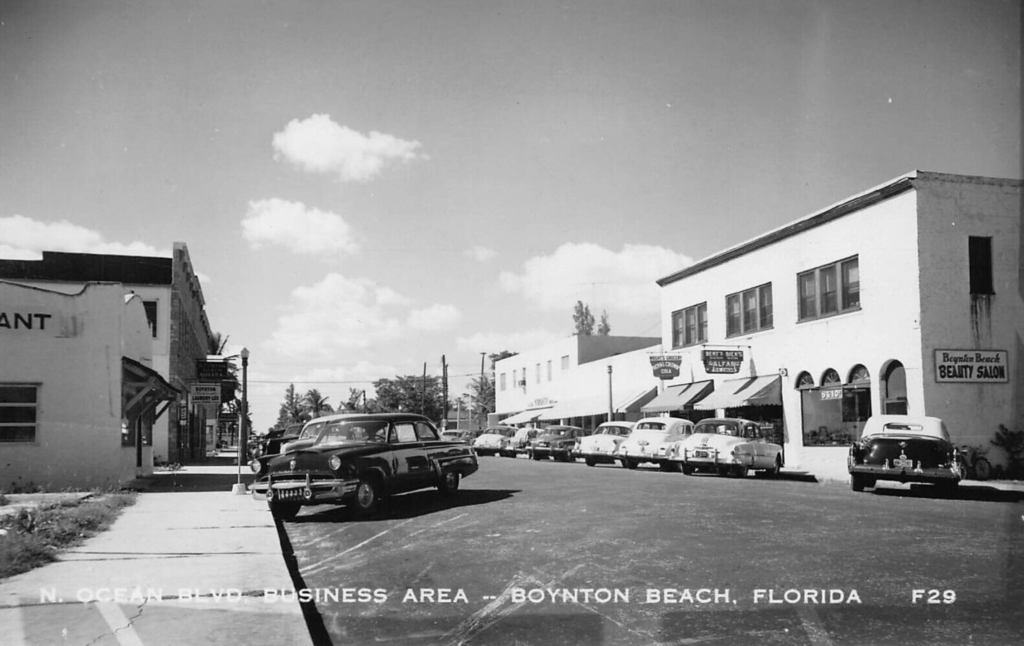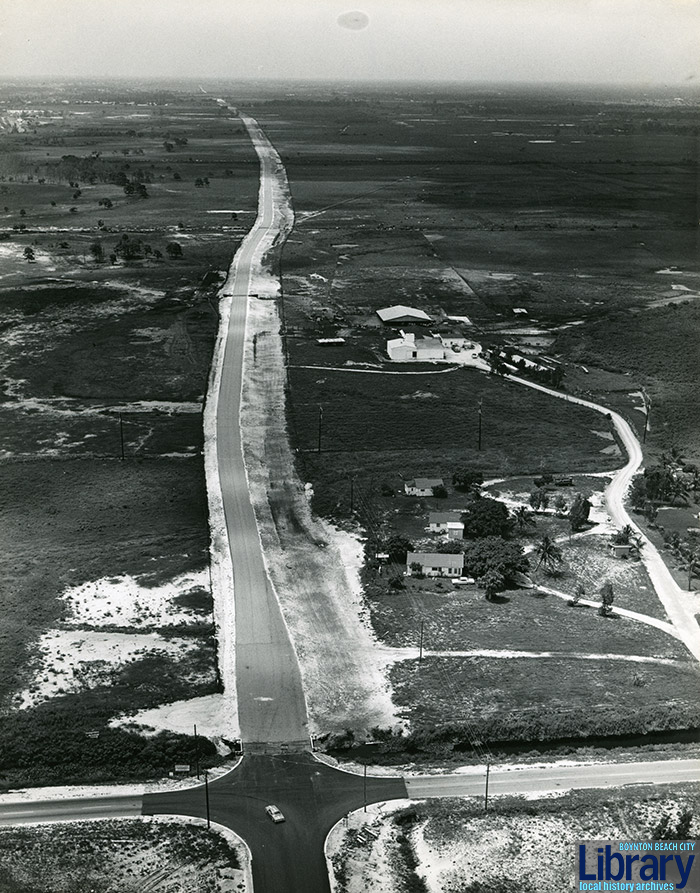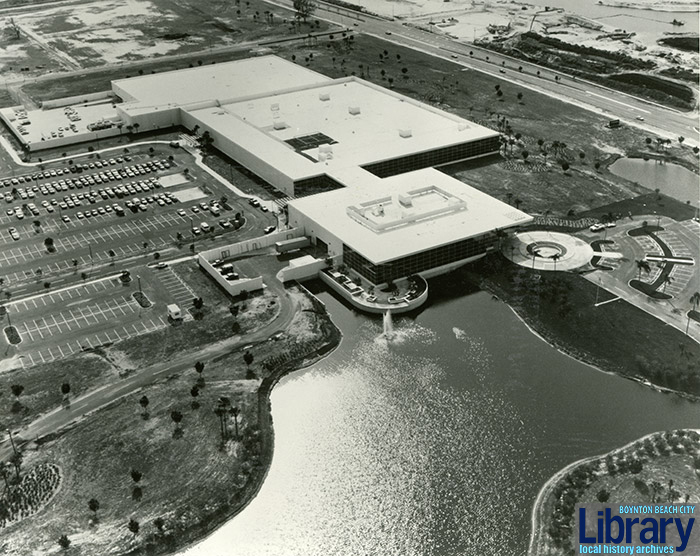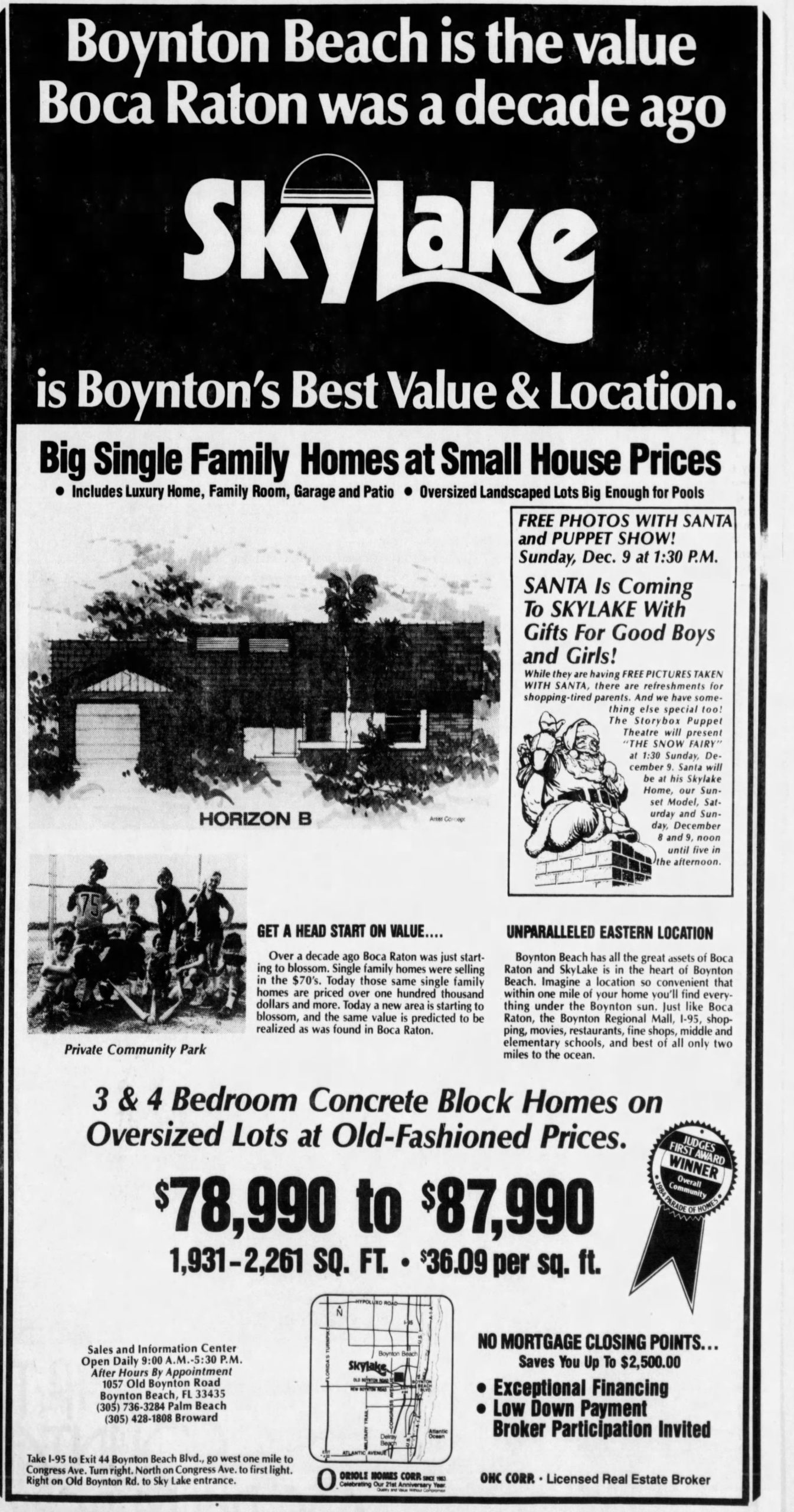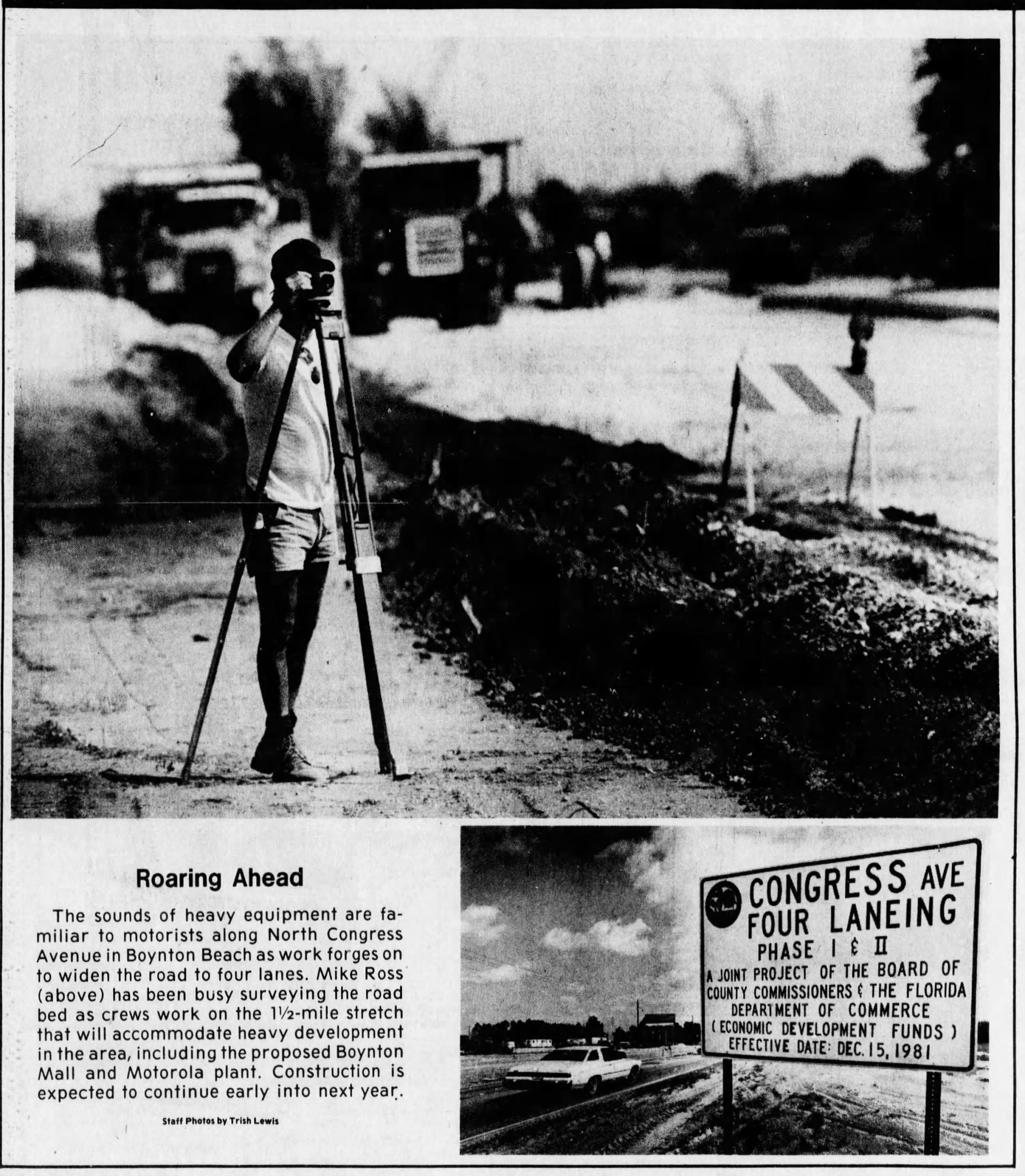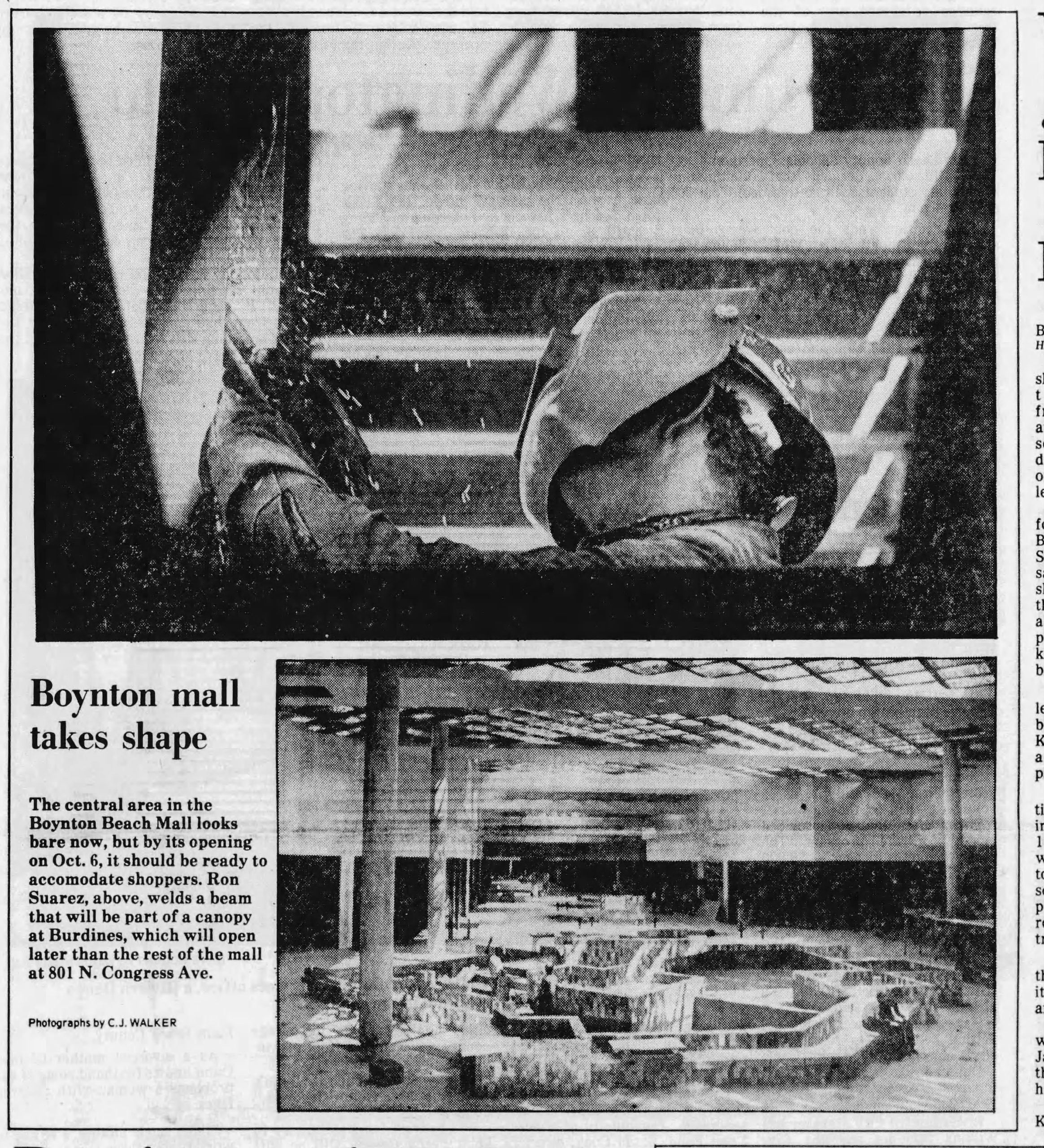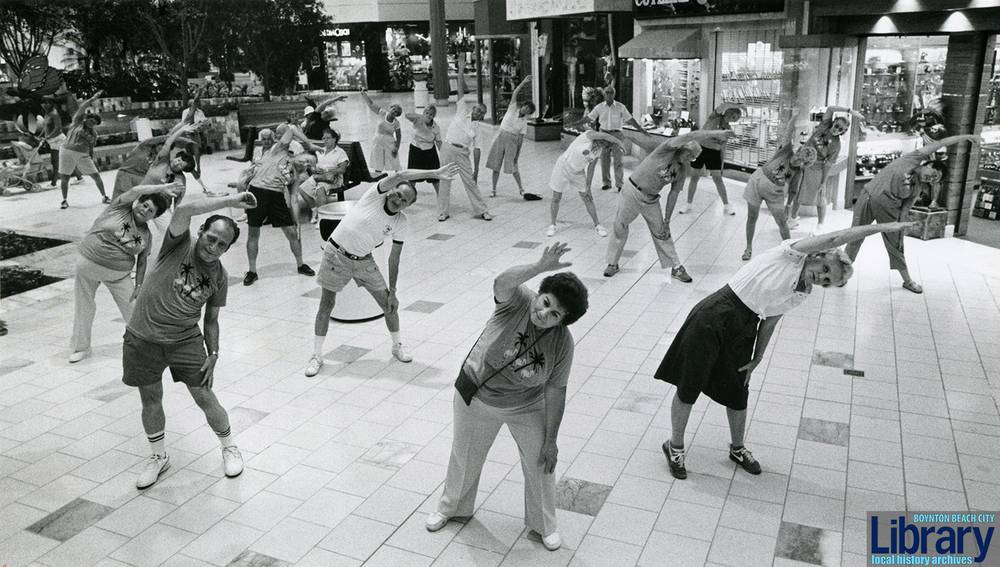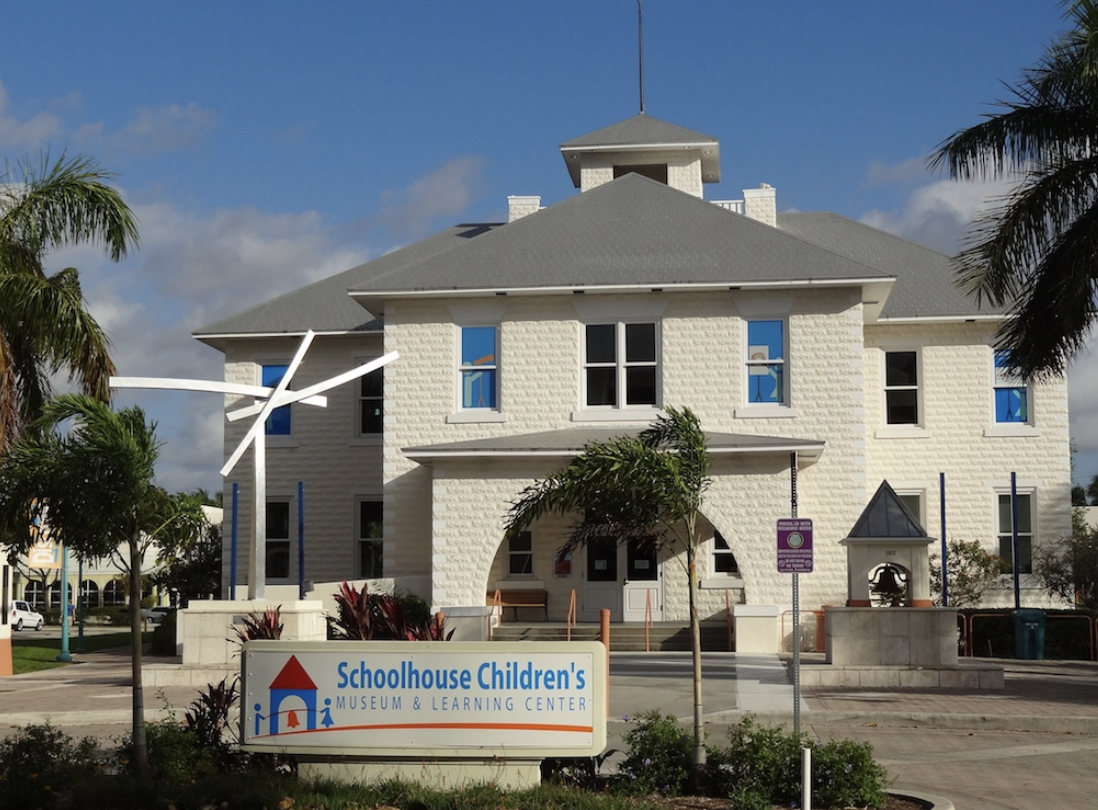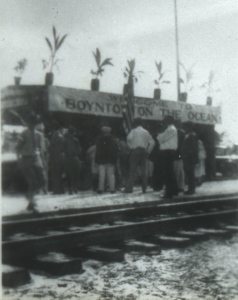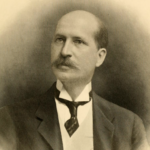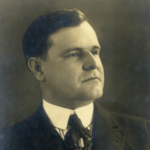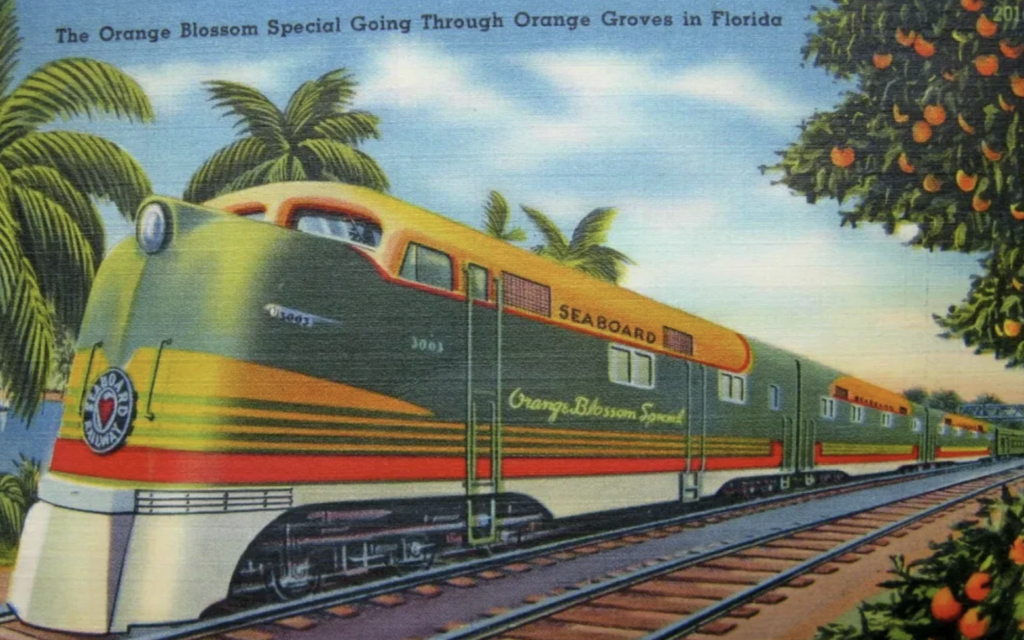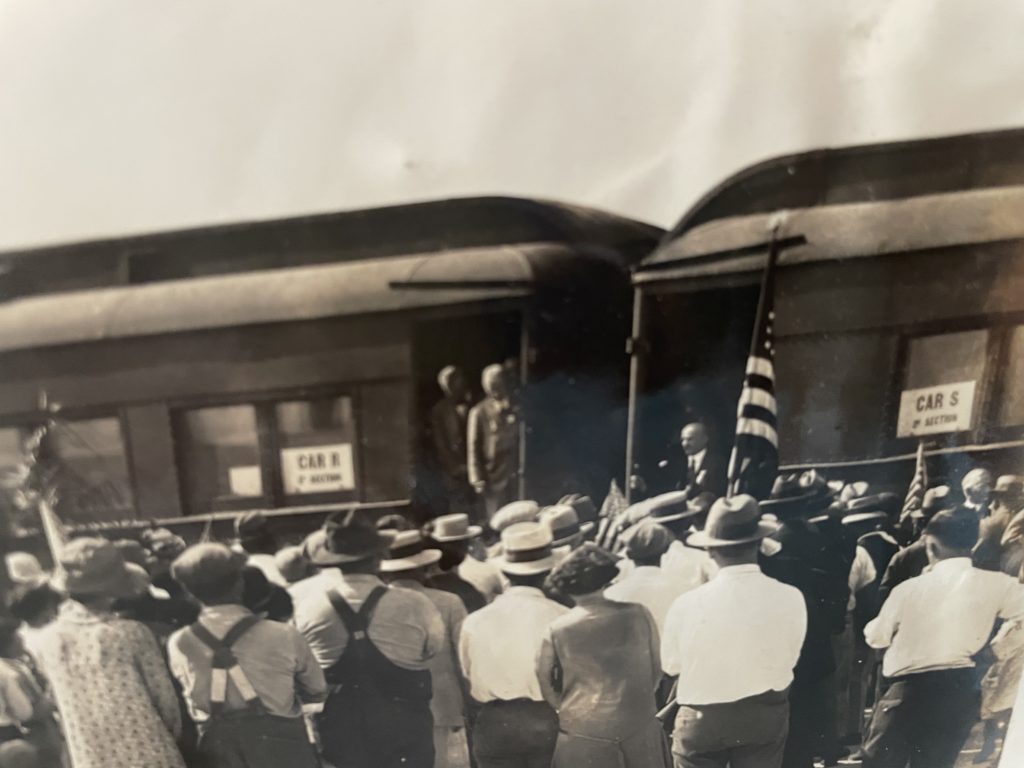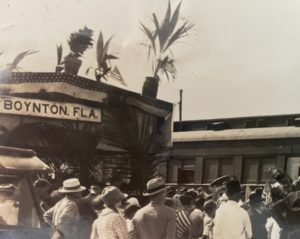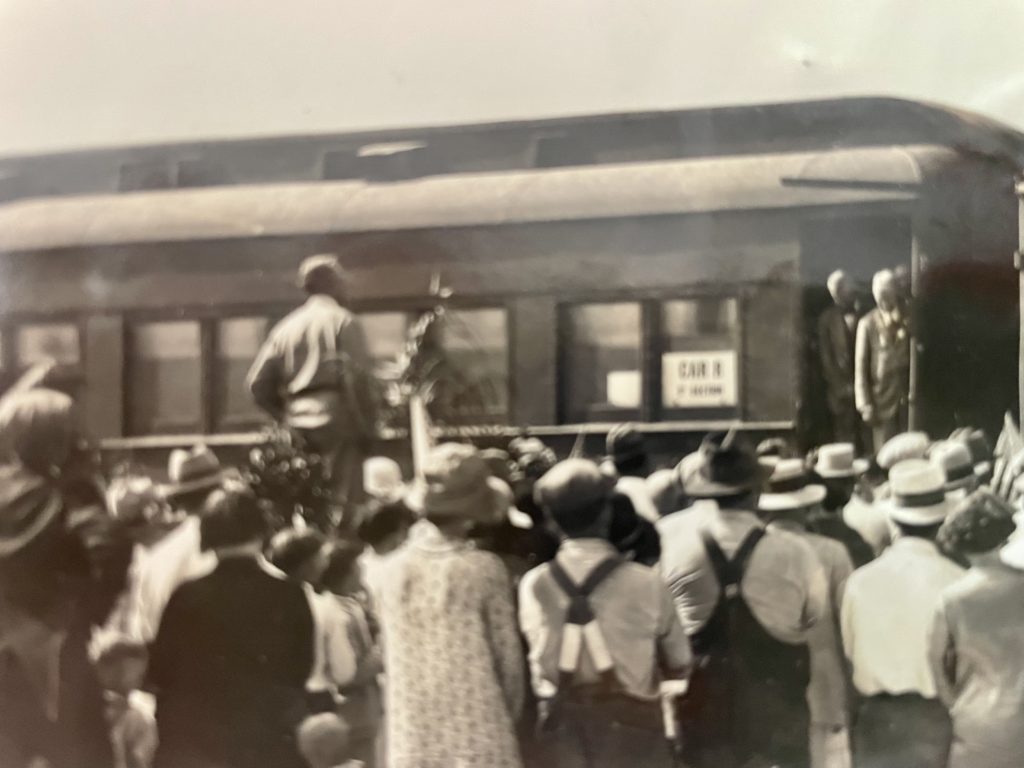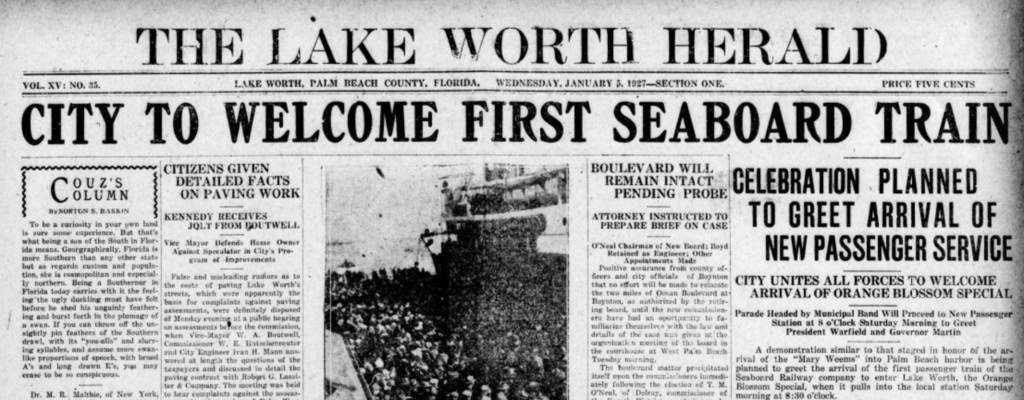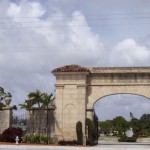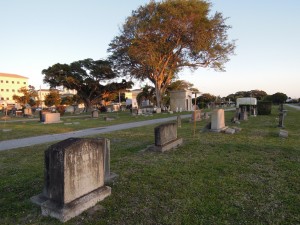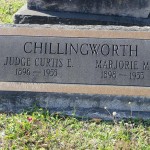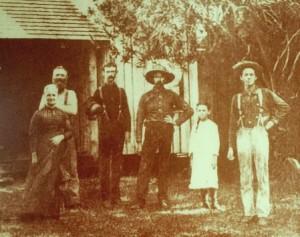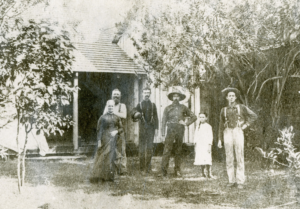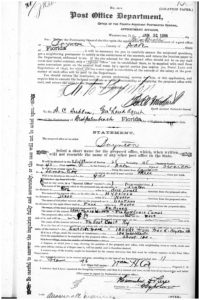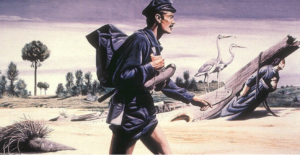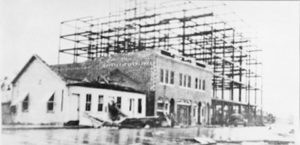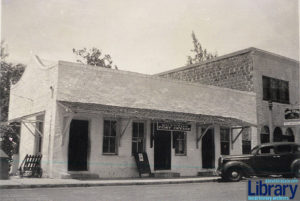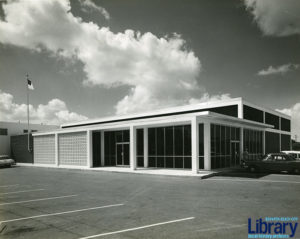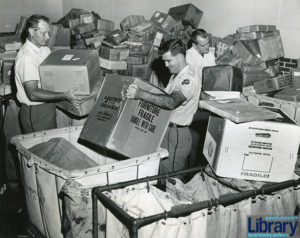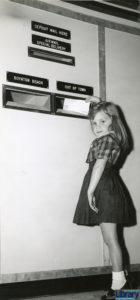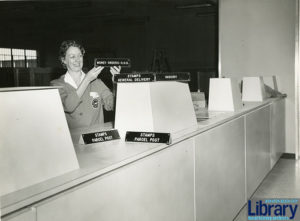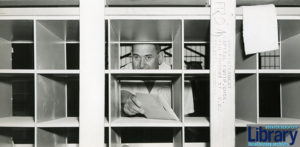LEGEND OF THE BOYNTON CAVES
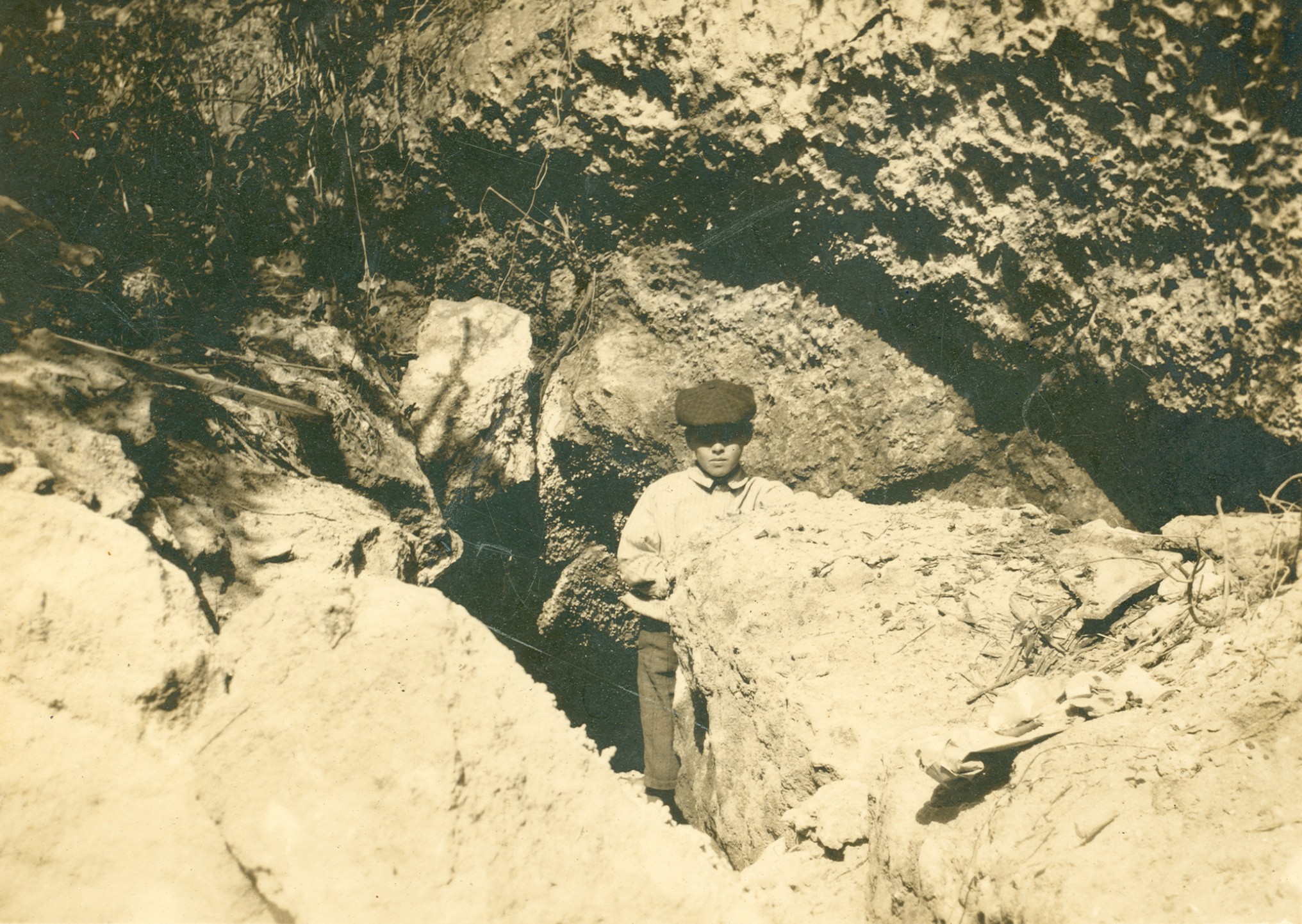
Postcard image with Charles Leon Pierce, son of barefoot mailman Charlie Pierce, at the cave’s entrance, ca. 1910
Mention the Briny Breezes area caves to local old timers, and the stories begin—Tales of pirates, hidden treasure, skeletons, boot-leggers, and Al Capone surface.
The Confederate Army hid in the connecting caves (Dillon), local children played in them, motorcycle gangs rode up from Miami to see them, the barefoot mailman took refuge and slept in them, and teenagers followed the underground caverns into nearby mansions basements to raid wine cellars.
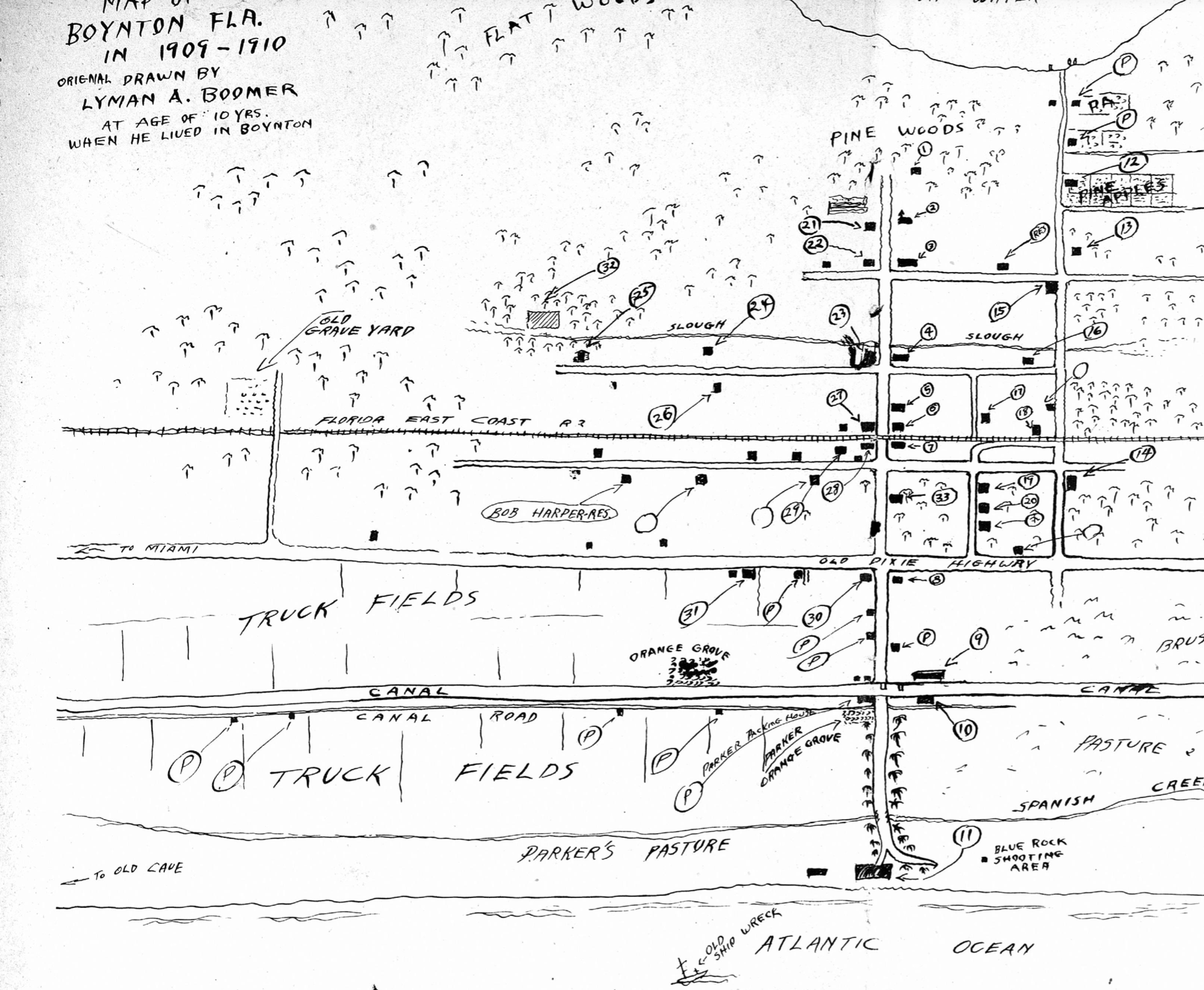
Lyman Boomer’s map of the Boynton area as he remembered it as it was in 1910 (he noted “to the Old Cave” on the far left).
Naturalist and illustrator Lyman Boomer mentioned the caves on his map depicting Boynton in 1909-1910.
Delray author/illustrator W.J. Pat Enright, who moved to Delray in the 1930s, coined the cave “Sailor Jim’s Cave” with his 1951 adventure novel about a mystery of buried treasure in Florida. Enright’s juvenile fiction title is available to read free on Archive.org. The author describes the old hermit’s coastal cave dwelling beginning on page 110.
Although archaeological evidence proves that the mysterious caves were in today’s Gulf Stream (south of Gulf Stream beach), generations of people who grew up in coastal Boynton/Delray remember the rocky outcroppings and underground caverns accessible at low tide, but many have trouble remembering where they were.
Located below a dune overlooking the Atlantic Ocean, the caves are about midway between Boynton and Delray Beach, south of Briny Breezes.
Long before luxury residences and condominiums lined much of Ocean Blvd., the vast beaches with rocky overlooks were an unobstructed paradise and veritable playground for locals and visitors.
Century-old newspapers mention the caves as tourist attractions, and a real photo postal card mailed in 1910 depicts Chuck Pierce, son of famed pioneer barefoot mail carrier Charlie W. Pierce, posing outside of such coastal caverns.
Palm Beach County archaeologists Dorothy Block and Chris Davenport are familiar with the cave. Davenport told me the Florida Master Site File lists the location as Boynton Cave. Block maintained the Boynton Cave (dwelling site) hails from the Glades I through the Historic period and represents one of 30 coastal Palm Beach County archaeological sites.
Prehistoric native Americans, probably the Jeaga, lived in them, used the rock slabs as tables, and left ancient artwork and messages on the ceilings. Anthropologist John M. Goggin described the cave as he found it in 1949:
A large cave in a coquina outcropping faces the old beach road. One entrance is only a couple of feet east of the road, the major entrance is no more than twenty feet from the road. This entrance, about twenty-five feet long and three to four feet high, opens into the largest of two connecting chambers. This room, about thirty-five feet wide slopes steeply down from the entrance, with the lowest part of the floor about nine or ten feet below the roof at the entrance…The ocean beach is only about 200 feet or less to the east of the cave entrance…Both the cave and the surrounding area have served as Indian camping spots as evidenced by sherds…Further evidence of Indian occupancy is a large painting on the roof of the main chamber. This is composed of several simple motifs painted in burnt sienna color (Goggin, 1949, 376-377).
WHAT HAPPENED TO THE CAVES?
According to a local on our Facebook page, Dennis Evangelist, a Bank of America banker built his house on the cave site in the late 1960s/early1970s. Evangelist recalled: “We rode our bikes over the Eighth Street bridge from the Lake Ida area to the Boynton Inlet to catch catfish and would stop by the cave to look around and sometimes snorkel.” Another cave entrance was reportedly barricaded in the early 2000s when a house above it collapsed while digging a swimming pool.
With the entrance sealed up and houses over the caves, it’s easy to dismiss the subterranean Boynton Caves as an urban legend. However, those familiar with the Florida coast know that caves existed along the beach’s ridge. Even the famed Boynton Oceanfront Hotel was built on a coastal ridge. Hence, the names Ocean Ridge and Highland Beach.
If you’ve ever been to Jupiter’s Blowing Rocks Nature Preserve, you can see its limestone outcropping with its solution hole spouts. Travel west, and the old coastline of 10,000 years ago can be recognized by a crest of higher land about a mile inland (High Ridge Road).
My husband and I rode bikes through Gulf Stream and marveled at the rocky ridges bordering some of the neighborhood’s most attractive homes. Across from Gulf Stream school is a public beach access (we had to walk the bicycles).
Once you enter the beach area, look north, and notice the large, partially submerged rock formation. The underground cave is below and to the west. If you are at Gulfstream Park, walk south on the beach to find the outcropping.
REFERENCES
Block, Dorothy. (2023). Three Thousand Years in Paradise: Coastal Archaeology in Central Palm Beach County. Vol. 76, No. 2 The Florida Anthropologist.
Dillon, Rodney, (1982 October 24) Confederates Escape off Southern Palm Beach County. Fort Lauderdale News).
Enright, Walter J. Pat. (1951). Sailor Jim’s Cave: A Mystery of Buried Treasure in Florida. Dodd Mead, New York. Internet Archive. Sailor Jim’s cave : a mystery of buried treasure in Florida : Enright, Walter J. Pat, 1879- : Free Download, Borrow, and Streaming : Internet Archive
Florida Division of Historic Resources. (2024). Florida Master Site File Florida Master Site File – Division of Historical Resources – Florida Department of State
Goggin, John M. (1949). Archeology of the Glades Area, Southern Florida. P.K. Yonge Library of Florida History, Gainesville.

